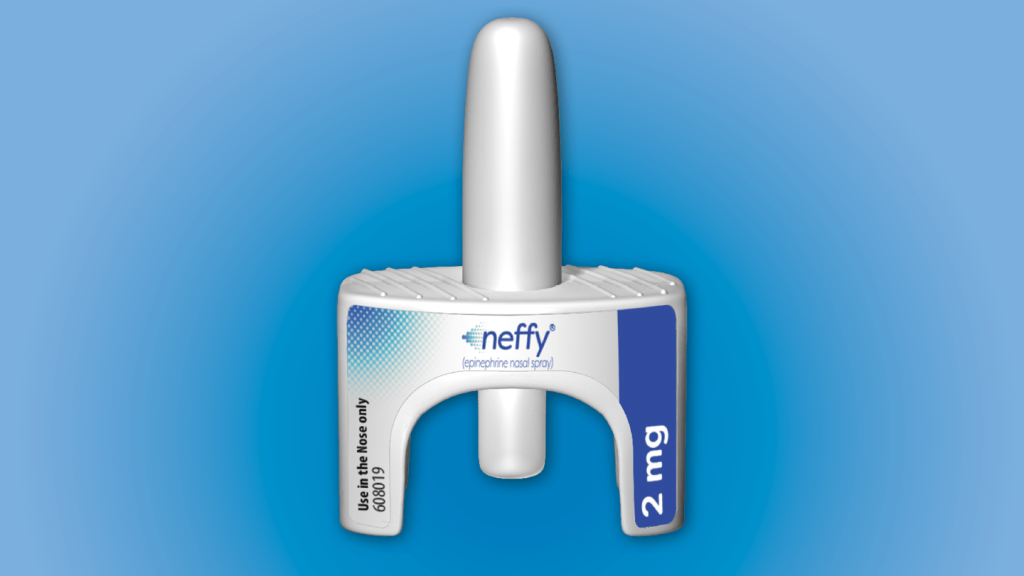The U.S. Food and Drug Administration recently approved the first epinephrine nasal spray called neffy, designed to treat severe allergic reactions like anaphylaxis in adults and children weighing 30 kilograms or more. It is expected to be available for purchase by early October, costing $25 with insurance and $199 without for a two-pack. The nasal spray device functions identically to the opioid-reversal medicine Narcan.
Epinephrine is a vital hormone utilized in the treatment of anaphylaxis, a severe allergic reaction with life-threatening potential. It induces a reaction marked by low blood pressure and breathing difficulty, triggered by exposure to allergens in food, drugs, or insect venom. The body’s immune system overreacts, releasing histamine and other compounds causing various symptoms. Studies have reported an increasing number of anaphylaxis cases, with about 25 percent occurring in children under 16 years. Although rare, anaphylaxis can lead to death without a method to predict the outcome.
The primary method of delivering epinephrine has always been through injection, either by shot or auto-injector devices, at the first signs of an anaphylactic reaction. However, some individuals, particularly parents of children at risk, are hesitant to administer epinephrine due to fears of needles or injuring the individual. Non-needle options like neffy are seen as a game-changer in addressing this gap in prompt healthcare intervention during anaphylaxis episodes.
During an allergic reaction, the immune system releases histamine and other compounds, resulting in a cascade of effects like breathing constriction and low blood pressure. This is where epinephrine comes in; it constricts blood vessels to elevate blood pressure and relaxes airways to restore normal breathing. Studies conducted by ARS Pharmaceuticals confirmed the effectiveness of neffy in delivering epinephrine comparable to injections, with blood concentration levels in children matching those seen in adults.
The availability of an epinephrine nasal spray like neffy could have a significant impact on anaphylaxis treatment, particularly in community settings where quick intervention is crucial. People can have varying reasons for hesitating to use epinephrine, including fear of needles, hesitancy in administering the auto-injector, or confusion about proper usage. The nasal spray offers an alternative delivery method that could boost confidence and encourage more individuals to administer epinephrine promptly during allergic reactions, ultimately improving care and reducing anxiety associated with untreated anaphylaxis.


